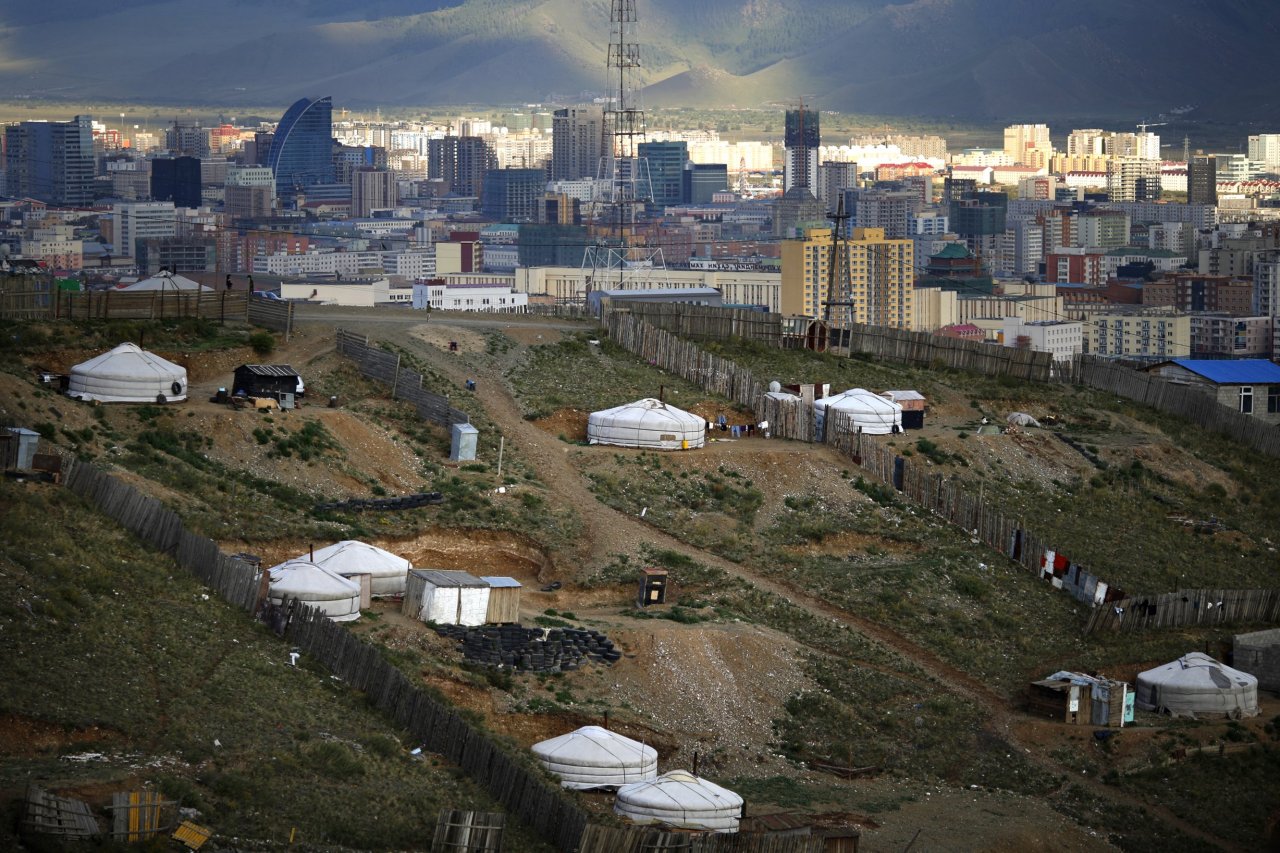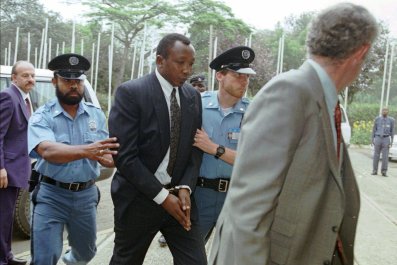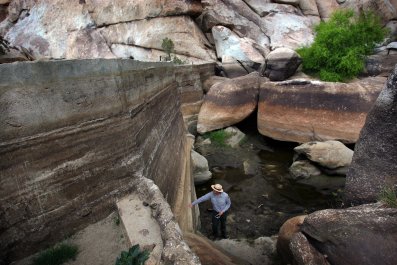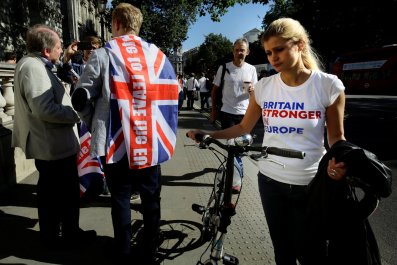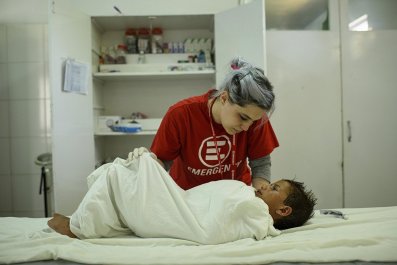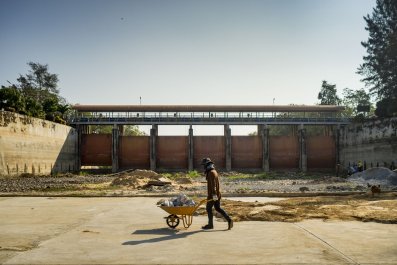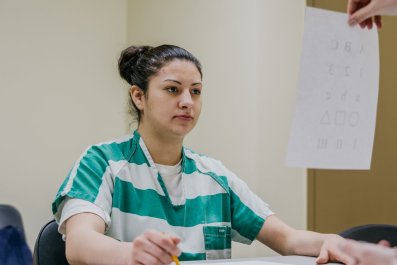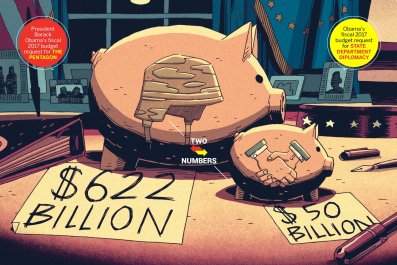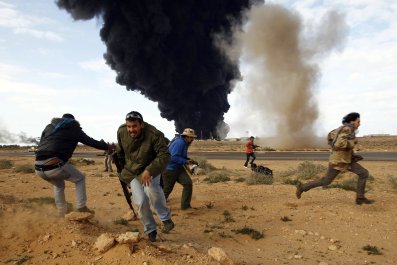Ganhuyag Chuluun Hutagt, the former vice minister of finance of Mongolia, doesn't have a mailing address for his home in Ulaanbaatar, the country's capital. Instead, he gets his personal mail where he works—the Ard Holdings building, which doesn't have an address either, but it is large and prominent enough that the post office knows where it is. That's common in Mongolia, where only a tiny percentage of people have a proper address, says Hutagt, now CEO of Ard Holdings, a financial holding company that has a stake in the Mongol Post, the country's largely state-owned mail service.
Ulaanbaatar is growing "organically," says Hutagt—many streets don't have names and buildings lack numbers. At the city's outskirts, people stay in tents, called gers, adding more unaccounted-for homes to the mix. And in the rest of the vast country, where many maintain a nomadic lifestyle, figuring out where to send someone's mail frequently involves lots of asking around and crossed fingers. "Obviously, herders don't have addresses," says Hutagt.
But that should soon change, thanks to What3words, a British company that has figured out a way for any location on Earth to be pinpointed with just three words. The company divided up the entire world into 57 trillion squares, each 3 meters by 3 meters (roughly 10 feet by 10 feet), and it has preassigned each a unique three-word address. The company's entranceway in London, for example, is "index.home.raft." In New York City, the southwest corner of Central Park can be described as "cute.seated.joke."
The system works in conjunction with GPS, and the company's co-founder and CEO, Chris Sheldrick, says it's as accurate as giving someone 16 digits worth of latitude and longitude. The key difference? Words are easier to remember—and tell someone—than numbers. "We wanted to make it very easy for anybody to communicate a precise location," Sheldrick says. The whole world—even the oceans—is covered by 40,000 English words.
Mongolia is now integrating the system into its postal network. The three-word addresses will be available in the Mongolian language in July, and Sheldrick says the hope is to "get the first packages delivered in August." Mongolia was ripe territory for the system. "The [Mongol] Post struggles to fulfill all of their deliveries in the capital city. There's a lot of either delayed deliveries or failed deliveries because of the address problem," Sheldrick says.
Hutagt is optimistic about the What3words app's potential to help Mongolians receive mail, improve the government's ability to reach its people and even drive up e-commerce business—after all, you can't have Amazon Prime without a place to deliver your packages.



